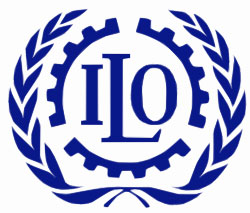Chiang Mai (Mizzima) – Burmese domestic workers living in Chiang Mai celebrated the International Labour Organization's (ILO) adoption of Convention 189 titled 'Decent Work for Domestic Workers' on Thursday, a press release from the MAP Foundation reported. The MAP Foundation is an NGO that advocates for Burmese workers in Thailand.

The ILO is a UN organization that works to improve workers' rights around the world.According to MAP, the ILO adopted the convention with 396 votes in favour, 16 against and 63 abstentions. The draft convention will set standards for working and living conditions for domestic workers and guarantee domestic workers the right to collective bargaining.
'If Thailand adjusts its laws to comply with this convention it will make a huge difference to the lives of domestic workers who currently face daily exploitation and abuse at work', said MAP.
Article 9 of convention 189 calls on members to ensure that domestic workers are entitled to keep possession of their travel and identity documents, which will have significant importance, as many migrant workers in Thailand are effectively held in limbo when their employers confiscate their paperwork.
In October 2010, Mizzima reported a case in which more than one thousand migrant Burmese workers went on strike in a fishing net factory in Khon Kaen because their employer had seized their legal documents and refused to pay their salaries, keeping them in virtual slavery.
There have been numerous cases of Burmese domestic workers experiencing ill treatment in Thailand.
Observers hope that the adoption of ILO convention 189 will propel the Thai government into adopting similar laws and policies in order to protect the rights of migrant domestic workers in Thailand.
MAP called the adoption of the convention an 'important, ground breaking piece of international legislation' and declared that it has 'the potential to bring an end to the exploitation and abuse that domestic workers have faced for so long’.
'The convention and recommendation alone will not put a halt to the abuses that continue to impact domestic workers and migrant domestic workers, but the standards it sets represent a significant step forward in acknowledging that domestic workers are workers, domestic work is work, and domestic work is not slavery’, the Migrant Forum in Asia said on Friday on its Web site.


